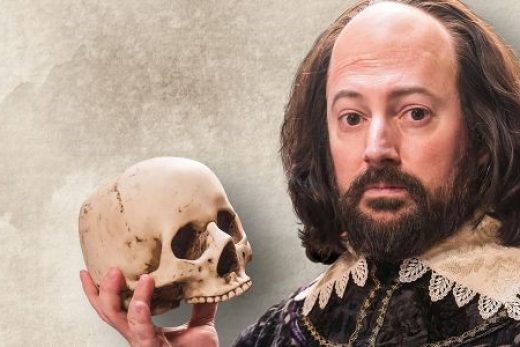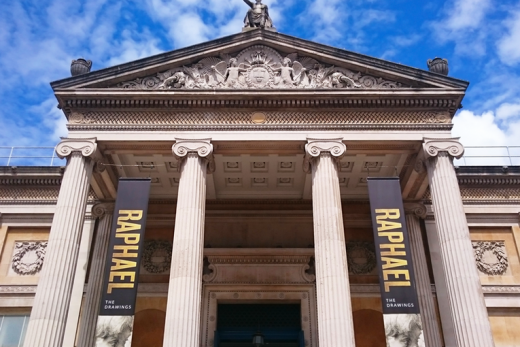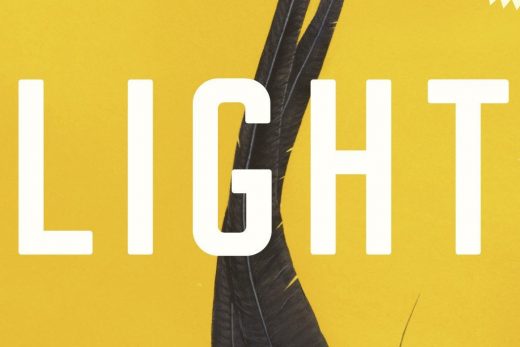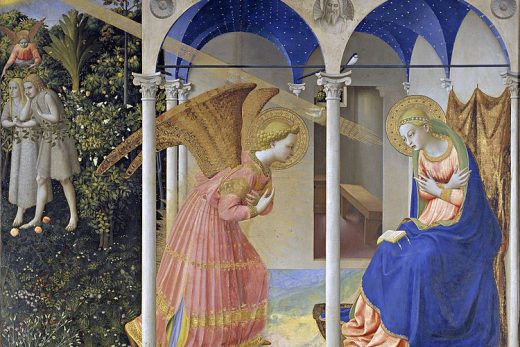Prof Anthony Reddie, Director of the Oxford Centre and Religion and Culture, charts his new direction for the research centre.
I see my tenure as Director of the renamed Centre for Religion and Culture as one that marks an evolutionary development in an imaginative centre that has been at the heart of a creative and innovative College, based on Oxford, for many years.
Having had an opportunity to read an extract on the historical development of the College and the emergence of the OCCC within that ongoing narrative, it is clear that change and innovation have been central to Regent’s Park College. The Revd Professor Paul Fiddes’ belief that Regent’s is a college that seeks to cultivate the ‘Christian mind’, is one that should remain at the heart of this Centre, but understood in a generous and inclusive way that affirms our diverse community.
From the outset I have seen my directorship as being one that seeks to augment and enhance the existing charisms of the Centre. I have expressed this in terms of affirming a commitment to ‘Equality, Diversity and Inclusion’ (EDI). I see this development as one that is understood in terms of ‘invitation’ and ‘value added’ as opposed a didactic and impositional ethic. This invitational ethic is one that will be offered to existing and potentially new Fellows to assess how an EDI focus can enhance the research perspectives of their scholarship. Fellows will be encouraged to reflect on the marginal perspectives that may exist in their research areas and to consider how an awareness of these can enhance their scholarship. I stress, once again, this is offered as an invitational ethic and not one of compulsion or imposition.
The movement to a Centre focused on ‘Religion’ as opposed to ‘Christianity’ will naturally enhance the aforementioned change in ethos. Clearly, the nomenclature and the phenomenon of ‘Religion’ can be interpreted in a plethora of ways. I am open to a multiplicity of ways in which the concept of ‘Religion’ is understood and given the EDI focus, it would be somewhat ironic if I were to adopt a prescriptive and indeed restrictive interpretation. Whilst being open to the varied ways in which religion can be imagined within the body politic (to include such manifestations as ‘Science Fiction’ as mode or meaning-making for e.g.), I am interested in affirming an inclusive and generous perspective that priorities the import of ‘Lived religious experience’.
Given my own training as a Practical theologian, my research interests have always focused on the ways in which religious performance or practice informs and impacts on cultural and ethnic identity and its resulting praxis. From our introductory conversations I have noted the synergy that exists in the varied research interests of our Fellows, in which there is an expression of ‘Lived religious experience’ and the intersectionality of religious practice and cultural performance. Whilst it would be a stretch to describe all our Fellows as being committed to Practical theology or self identifying as Practical theologians, I nonetheless, believe that some of the perspectives of Practical theology might be seen as a unifying thread in the continued development of the Centre.
The premise of the OCRC will remain the notion that religion and its concomitant belief and practice are of major import in the midst of human affairs, be it for individuals, communities, societies and nations. The existence of religion and its immersion within and expression as a part of varied cultural forms should be a constant feature of the developing Centre. In this regard, what I am proposing is not that different from how the Centre has functioned for many years since its inception. This evolutionary process in the OCRC is one that will be informed by the EDI ethic I have outlined previously, in which unheralded voices and perspectives will be supported and affirmed. Some of the examples I am considering include investigations into Sufi poetry as an alternate expression of Muslim identity beyond the more mainstream Sunni and Shia perspectives or an exploration of Dalit theology and culture as a riposte to Brahmin informed notions and practices in Indian Christianity.
Examples of previous forms of this work in my own scholarship can be found in the special issue of Black Theology: An International Journal (for which I serve as editor) in which the legacy of Fidel Castro and his significance to Caribbean culture and peoplehood was explored, under the guest editorship of my friend and former colleague, The Revd Dr Michael Jagessar, a noted Caribbean theologian. You can find more details on this issue here.
In terms of my own scholarly focus, I come to the Centre as a Black Liberation theologian and a Postcolonial scholar. I am no stranger to the College or the Centre itself. An example of the kind of work I have undertaken in the past that pertains to this broader ethic can be seen in the book project I led for the Baptist Union of Great, the Jamaica Baptist Union and Regent’s Park College, entitled Journeying to Justice: Contributions to the Baptist Tradition Across the Black Atlantic – that came out in 2017.
In addition to overseeing the existing seminar series on a Monday afternoon, I am looking to develop collaborative research projects with a range partners, including (but not limited to) the Baptist Union of Great Britain, The Council for World Mission, The World Council of Churches, The Transatlantic Roundtable on Race and Religion and the National Research Foundation of South Africa. These projects will explore some of the following areas:- ‘Christianity and Nationalism’ – Are there good forms of Nationalism? Should Christians ever be nationalists? ‘Why has Black religious radicalism (such as Rastafari, The Nation of Islam and Postcolonial Diasporan Black Christianity) remained peaceful?’ ‘An Exploration of the London Missionary Society Archives as a means of establishing the ethical case for Reparations’. ‘Exploring a “Chav” notion of Christianity’.
I am committed to supporting existing Fellows (and recruiting new Fellows) in developing their scholarship, supporting them in creating projects and trying to locate funding in order to assist in the execution of these research activities. I am also committed to organising national and international conferences and supporting postgraduate students.
Given the continued significance and import of religion within the body politic of this nation and across the world, I believe that the OCRC is ideally placed to be locus of authority in undertaking consultancy based work looking at religious literacy and the public understanding of religion and its impact on cultural identity and expression. Whilst other institutions have expertise in these areas (such as Goldsmiths for e.g.) none of them will bring an expansive, postcolonial, EDI informed perspective to the interpretive understanding of the lived experience, practice and performance of religion as it intersects with culture.
The OCRC is at the cusp of a new identity as interdisciplinary Centre committed to Equality, Diversity and Inclusion that affirms marginal perspectives, identities, cultural expression and practices. I want the OCRC to support scholarly initiatives that are committed to human flourishing. I am hoping that all the existing and new Fellows will be willing to participate in the future development of the OCRC. I look forward to working with you all.
Dr Anthony G. Reddie
Director: The Oxford Centre for Religion and Culture





This approach is so welcome Anthony thank you; and it’s timely too, both nationally and internationally.
Thanks for the leadership you’re offering and for modelling an open invitation to invite diverse perspectives, with a promise of equal respect and inclusivity. There is much that academia and the secular leadership can learn from this.
Wishing you every blessing as you progress.